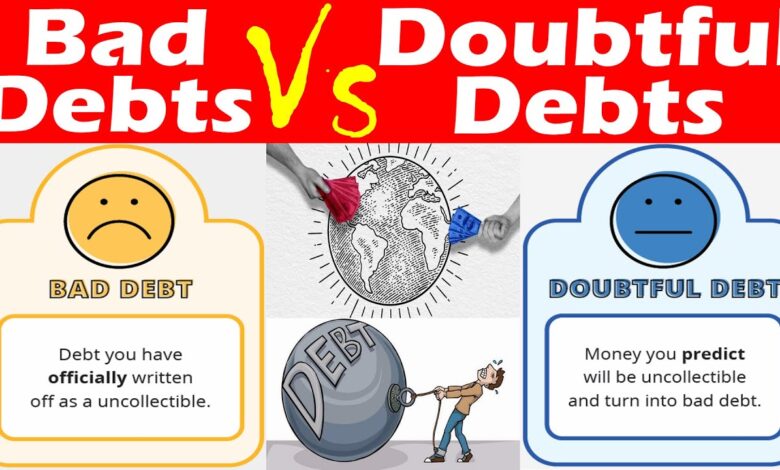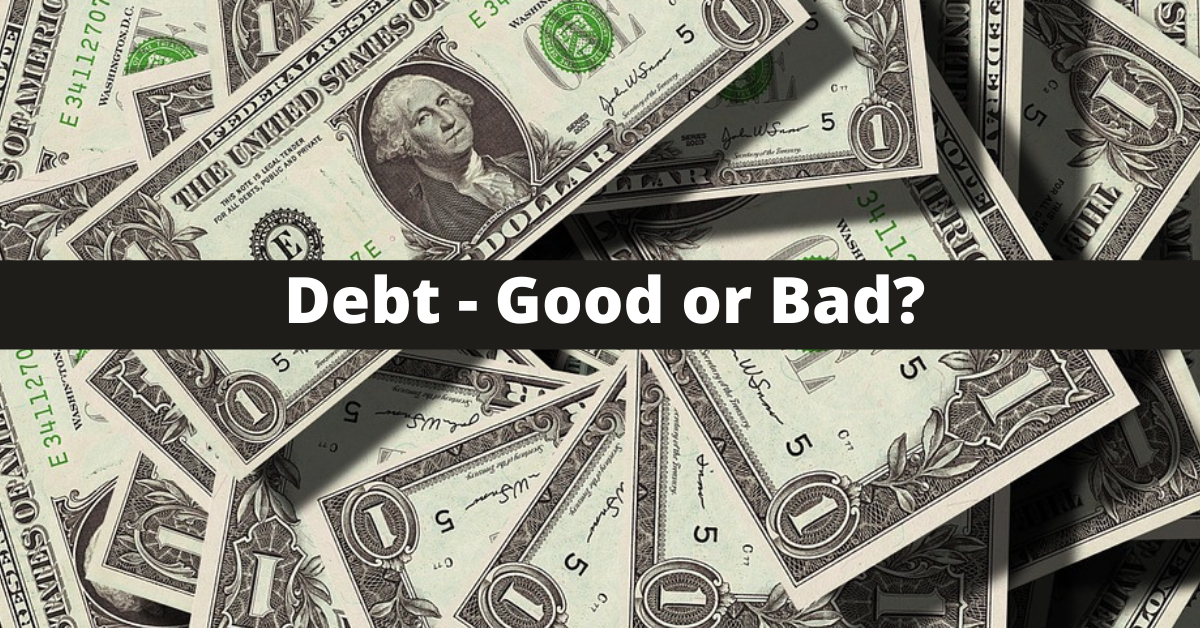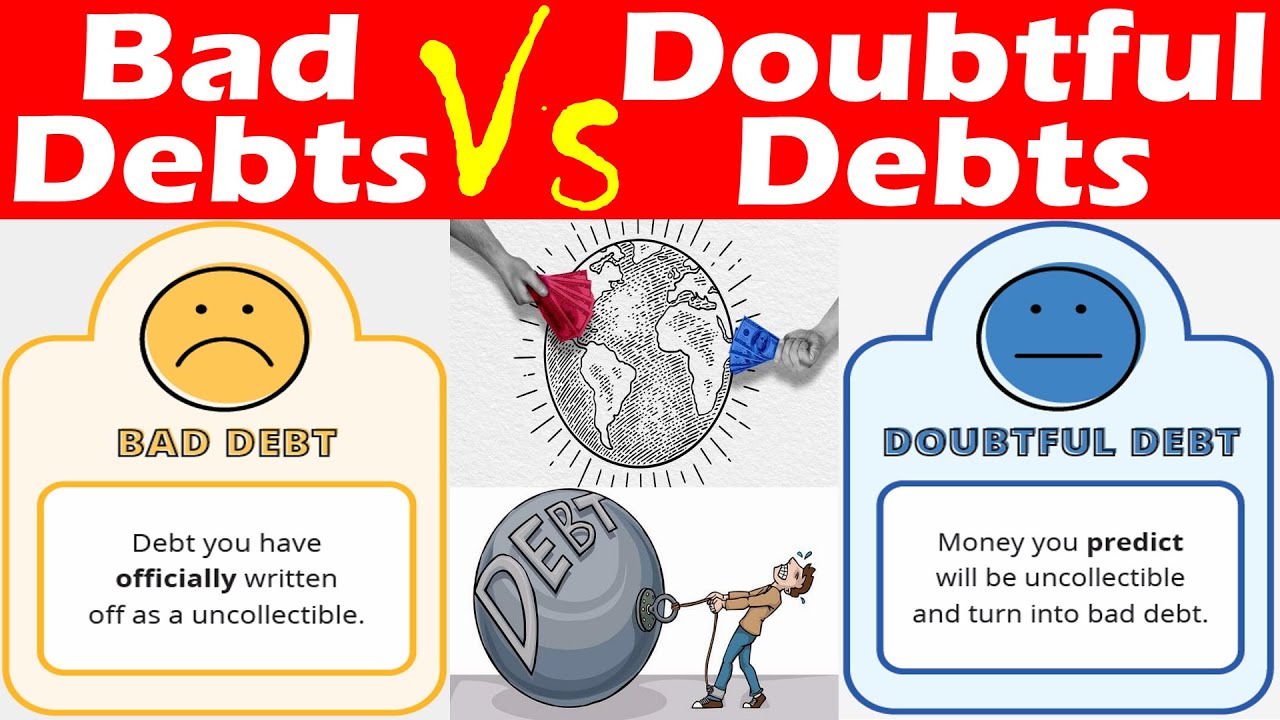
Debt Used Well Is Not Evil: Understanding the Power of Responsible Borrowing
Debt used well is not evil, it’s a powerful tool that can unlock opportunities and propel you toward your financial goals. But just like any tool, it requires careful handling and a clear understanding of its potential risks and rewards.
Think of it like a double-edged sword: it can be a catalyst for growth or a burden that weighs you down. The key lies in understanding the difference between good and bad debt, and using it strategically to your advantage.
This article delves into the multifaceted world of debt, exploring its nature, strategic utilization, psychological impact, and role in both individual and societal well-being. We’ll navigate the complexities of responsible borrowing, debunking common misconceptions and shedding light on the power of informed financial decisions.
The Nature of Debt
Debt is a financial tool that can be both beneficial and detrimental depending on how it is used. Understanding the difference between good and bad debt is crucial for making responsible financial decisions.
Good Debt vs. Bad Debt
The distinction between good and bad debt lies in its potential to generate future income or increase your net worth.
- Good debtis often associated with investments that have the potential to generate future income or increase your net worth. Examples include:
- Student loans: Education can lead to higher earning potential and career advancement.
- Mortgages: Owning a home is a significant investment that can appreciate in value over time.
- Business loans: Starting or expanding a business can create new revenue streams and job opportunities.
- Bad debt, on the other hand, is associated with expenses that do not generate income or increase your net worth. Examples include:
- Credit card debt: High-interest rates can quickly accumulate, leading to significant financial burdens.
- Payday loans: These short-term loans often come with exorbitant interest rates and fees.
- Cash advances: These loans are often associated with high fees and can quickly drain your bank account.
Responsible Borrowing
Responsible borrowing involves carefully considering your financial situation, borrowing only what you can afford to repay, and prioritizing debt repayment.
- Budgeting: Create a realistic budget that tracks your income and expenses. This will help you determine how much you can afford to borrow and repay each month.
- Credit Score: Maintain a good credit score by making timely payments on your debts and avoiding excessive borrowing. A good credit score can qualify you for lower interest rates and better loan terms.
- Debt Management: Develop a debt management plan that prioritizes high-interest debts and includes strategies for reducing your overall debt burden.
Risks and Rewards of Different Debt Types
Different types of debt come with varying risks and rewards. Understanding these differences can help you make informed decisions about borrowing.
Student Loans
- Risk: High debt burden, potential for job instability, and difficulty repaying loans if you cannot find a job in your field of study.
- Reward: Increased earning potential, career advancement opportunities, and access to higher-paying jobs.
Mortgages
- Risk: Large financial commitment, potential for housing market fluctuations, and risk of foreclosure if you cannot make payments.
- Reward: Homeownership, potential for appreciation in value, and tax deductions for mortgage interest.
Credit Cards
- Risk: High-interest rates, potential for overspending, and damage to your credit score if you cannot make payments.
- Reward: Convenience for purchases, rewards programs, and building credit history if used responsibly.
Strategic Debt Utilization

Debt, when used strategically and responsibly, can be a powerful tool for achieving financial goals. It allows individuals and businesses to access capital that they may not have readily available, enabling them to invest in opportunities that can lead to long-term growth and prosperity.
However, it is crucial to understand the potential risks and consequences of debt before taking it on, and to develop a sound strategy for managing it effectively.
Impact of Debt on Personal and Business Growth
Debt can have a significant impact on both personal and business growth. When used wisely, it can accelerate progress and open doors to new opportunities. For individuals, debt can be used to finance education, purchase a home, or consolidate high-interest debt.
In the case of education, taking out student loans can allow individuals to acquire skills and knowledge that can lead to higher earning potential and career advancement. Similarly, a mortgage loan can provide individuals with the opportunity to build equity in a home, which can be a valuable asset over time.For businesses, debt can be used to fund expansion, invest in new equipment, or develop new products and services.
This can lead to increased revenue, market share, and profitability. However, it is important to note that debt can also be a double-edged sword. If not managed carefully, it can lead to financial strain, stress, and even bankruptcy.
Debt Management Strategies
Effective debt management is essential for maximizing the benefits of debt while minimizing its risks. This involves developing a comprehensive plan that addresses key areas such as budgeting, repayment plans, and credit monitoring.
Budgeting
A well-defined budget is crucial for managing debt effectively. It helps individuals and businesses track their income and expenses, identify areas where they can cut back, and allocate funds for debt repayment. Budgeting tools and software can be helpful in this process, providing automated tracking and analysis.
Repayment Plans
Repayment plans should be tailored to individual circumstances and financial goals. For example, individuals with high-interest debt may want to prioritize paying down those loans first, while businesses may focus on repaying debt that has the most favorable terms.
Credit Monitoring
Regularly monitoring credit scores and reports is essential for identifying any errors or fraudulent activity that could negatively impact creditworthiness. This can help individuals and businesses take steps to improve their credit scores and access better financing options in the future.
Debt, when used strategically, isn’t inherently evil. It can be a powerful tool for building wealth and achieving your goals. But like any tool, it requires responsible use. That’s where accountability comes in. Being accountable for your financial decisions, setting clear goals, and tracking your progress is crucial.
It’s about taking ownership of your actions and building trust with yourself and others. This principle of accountability is key to building a strong personal brand, as outlined in this insightful article: why accountability is the ultimate personal brand trait and 4 ways to make it the center of your value system.
Ultimately, accountability is the foundation for responsible debt management, enabling you to leverage its potential while avoiding the pitfalls.
The Psychological Aspect of Debt

Debt can be a significant financial burden, but it can also have a profound impact on our mental and emotional well-being. The psychological effects of debt can be far-reaching, affecting our self-esteem, relationships, and overall quality of life. Understanding these effects is crucial for managing debt effectively and maintaining our mental health.
Just like debt used well can be a powerful tool for growth, a first-of-its-kind special election in Alaska with 48 House candidates is a unique opportunity for change and progress. It’s a chance to leverage the diverse voices of the electorate to shape the future of the state, much like a well-managed debt can shape a business’s future.
Debt’s Impact on Self-Esteem
Debt can significantly impact self-esteem, often leading to feelings of shame, guilt, and inadequacy. When individuals feel overwhelmed by debt, they may start to doubt their financial capabilities and their ability to manage their finances effectively. This can lead to a negative self-image and a decline in overall confidence.
Furthermore, the constant worry and stress associated with debt can contribute to feelings of anxiety and depression, further impacting self-esteem.
Debt’s Impact on Relationships
Debt can also strain relationships, both personal and professional. Financial disagreements and arguments over money are common in families and couples struggling with debt. The constant pressure of debt can lead to increased stress, tension, and resentment, putting a strain on relationships.
It can also create a sense of isolation and loneliness, as individuals may avoid social gatherings or activities due to financial constraints. Additionally, debt can impact work performance, as individuals may be distracted or preoccupied with their financial situation.
Strategies for Overcoming the Emotional Burden of Debt
Overcoming the emotional burden of debt requires a multifaceted approach. Here are some strategies to consider:
- Acknowledge and Validate Your Feelings:The first step is to acknowledge and validate your feelings. It is essential to recognize that the emotional burden of debt is real and impacts your well-being. Avoid suppressing or minimizing your feelings, as this can exacerbate the problem.
Instead, allow yourself to feel the emotions and seek support from trusted friends, family members, or professionals.
- Seek Professional Help:If you are struggling to manage the emotional impact of debt, seeking professional help is crucial. A therapist or counselor can provide a safe and confidential space to process your feelings and develop coping mechanisms. They can also help you identify and address any underlying issues contributing to your emotional distress.
- Create a Debt Management Plan:Developing a realistic and achievable debt management plan can provide a sense of control and reduce stress. This plan should involve setting realistic goals, budgeting effectively, and exploring debt consolidation or repayment options.
- Focus on Your Strengths:Despite the challenges of debt, it is important to focus on your strengths and accomplishments. Remember that your financial situation does not define you as a person. Celebrate your successes, no matter how small, and focus on building a positive self-image.
- Practice Self-Care:Taking care of your physical and mental health is crucial when dealing with debt. Engage in activities that promote relaxation and well-being, such as exercise, meditation, or spending time in nature. Avoid unhealthy coping mechanisms like excessive spending or substance abuse.
Debt and the Economy: Debt Used Well Is Not Evil
Debt plays a crucial role in shaping the dynamics of economic growth and development. It can be a powerful engine for progress, facilitating investment, innovation, and job creation. However, excessive debt accumulation can also pose significant risks, potentially leading to financial instability and economic downturns.
Understanding the intricate relationship between debt and the economy is essential for navigating the complexities of modern financial systems.
Debt as a Catalyst for Economic Growth
Debt serves as a vital source of funding for businesses, individuals, and governments, enabling them to invest in projects that drive economic expansion. Businesses rely on debt to finance expansion, research and development, and acquisition of assets. Individuals utilize debt to purchase homes, fund education, and manage unexpected expenses.
Governments often borrow to finance infrastructure projects, social programs, and respond to economic emergencies. By providing access to capital, debt allows for the realization of projects that might otherwise be delayed or abandoned, ultimately contributing to economic growth.
Just like debt used well can be a powerful tool for building wealth, sometimes taking a shortcut in the kitchen can lead to delicious results. For flaky, oozy stuffed biscuits, I swear by using store-bought dough for flaky oozy stuffed biscuits just use store bought dough.
It saves time and effort, and the final product is just as satisfying. After all, sometimes the smartest move is to leverage existing resources, whether it’s a loan for a business venture or a pre-made biscuit dough for a delightful dinner.
The Potential Risks of Excessive Debt
While debt can be a powerful tool for economic development, excessive debt accumulation can lead to a number of risks. At the individual level, high debt burdens can result in financial distress, leading to difficulty in meeting loan payments, credit score deterioration, and potential bankruptcy.
At the societal level, excessive debt can contribute to financial instability, as borrowers may struggle to repay their obligations, leading to defaults and cascading effects on lenders and financial institutions.
Responsible Lending Practices and Financial Literacy, Debt used well is not evil
To mitigate the risks associated with debt, responsible lending practices and financial literacy are crucial. Lenders should carefully assess borrowers’ ability to repay loans, ensuring that debt levels are sustainable. Financial education programs can empower individuals to make informed financial decisions, understand the implications of debt, and develop strategies for responsible borrowing and debt management.
The Importance of Debt Management
Effective debt management is essential for both individuals and societies. Individuals should prioritize paying down high-interest debt, create a budget that allows for debt repayment, and avoid taking on more debt than they can afford. Governments should implement policies that promote financial stability, including responsible fiscal management, regulations on lending practices, and programs to support individuals and businesses facing financial difficulties.
Debt and Social Responsibility
Debt, while a powerful tool for economic growth and individual advancement, also carries ethical implications that cannot be ignored. The responsibility to use debt wisely extends beyond individual borrowers to encompass the broader societal context, particularly when it comes to vulnerable populations and the potential for predatory lending practices.
The Ethical Considerations of Debt
The ethical considerations surrounding debt are multifaceted and complex. On one hand, debt can be a valuable tool for individuals and businesses to achieve their goals. For example, a student loan can enable someone to pursue higher education, potentially leading to a higher-paying career.
Similarly, a business loan can help a company expand its operations, creating jobs and contributing to economic growth. However, on the other hand, debt can also be a source of significant financial hardship, particularly for those who are vulnerable or lack access to financial literacy resources.
Predatory lending practices, such as high-interest rates and deceptive marketing tactics, can trap individuals in a cycle of debt that is difficult to escape.
The Role of Government Policies and Regulations
Government policies and regulations play a crucial role in mitigating the negative consequences of debt. For instance, laws governing interest rates, disclosure requirements, and consumer protection can help to prevent predatory lending practices. Government programs, such as financial literacy initiatives and debt relief programs, can empower individuals to make informed financial decisions and provide support to those who are struggling with debt.
Furthermore, policies aimed at promoting financial inclusion, such as expanding access to affordable credit and financial services, can help to reduce the reliance on high-cost loans and create a more equitable financial system.
Solutions to Address Debt and Social Inequality
| Solution | Description ||—————————————-|———————————————————————————————————————————————————————————————————————————————————————–|| Financial Literacy Programs| Goal:Equip individuals with the knowledge and skills necessary to make informed financial decisions, manage their finances effectively, and avoid predatory lending practices.
Implementation:Offer free or low-cost financial literacy courses and workshops, promote financial education in schools, and provide online resources. || Consumer Protection Laws| Goal:Protect consumers from predatory lending practices by regulating interest rates, requiring clear and transparent loan terms, and establishing mechanisms for consumer complaints.
Implementation:Enact and enforce laws that prohibit deceptive marketing, unfair lending practices, and excessive fees. || Debt Relief Programs| Goal:Provide financial assistance to individuals struggling with debt, such as through debt consolidation, loan forgiveness, or bankruptcy protection. Implementation:Establish government programs or partnerships with non-profit organizations to offer debt relief options to those in need.
|| Access to Affordable Credit| Goal:Expand access to affordable credit options, such as microloans, credit unions, and community development financial institutions (CDFIs), to reduce reliance on high-cost loans. Implementation:Provide financial incentives to lenders to offer affordable credit products and support the development of CDFIs.
|| Regulation of Predatory Lending| Goal:Prevent predatory lending practices by targeting specific types of loans, such as payday loans and high-interest credit cards, and implementing stricter regulations. Implementation:Impose caps on interest rates, require lenders to conduct thorough credit checks, and increase penalties for predatory lending practices.
|| Investment in Community Development| Goal:Address the root causes of debt by investing in community development initiatives that promote economic opportunity and social mobility. Implementation:Fund programs that provide job training, affordable housing, and access to healthcare, education, and other essential services. |
Last Word

Ultimately, the key to navigating the world of debt lies in responsible borrowing, careful planning, and a proactive approach to managing your finances. Whether you’re seeking to invest in your education, purchase a home, or launch a business, understanding the nuances of debt can empower you to make informed decisions that lead to financial success and personal fulfillment.






